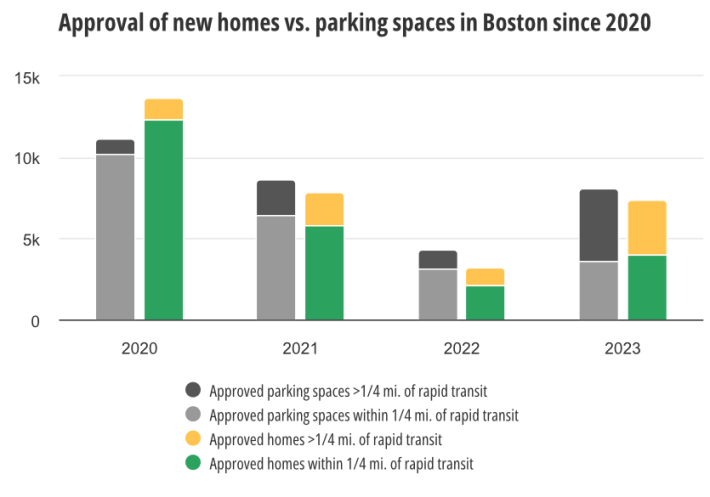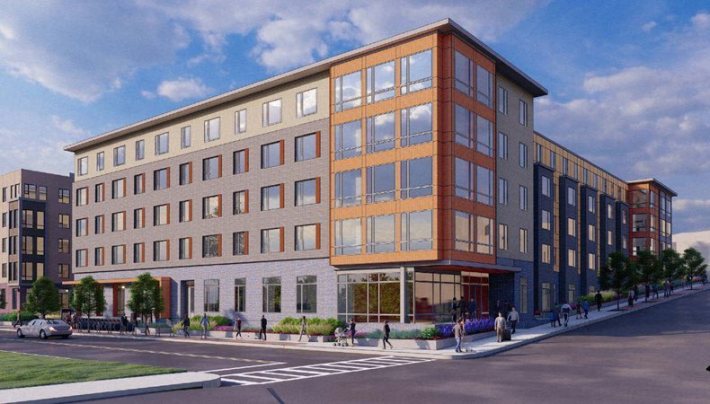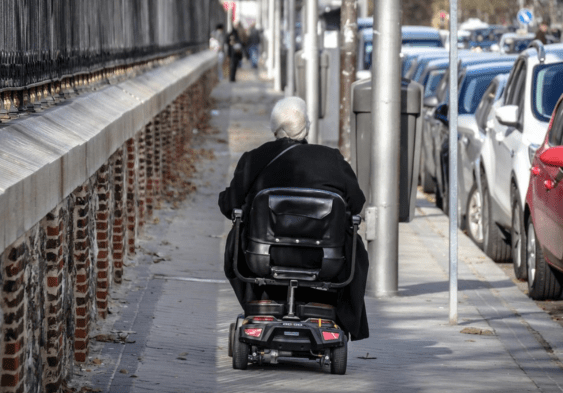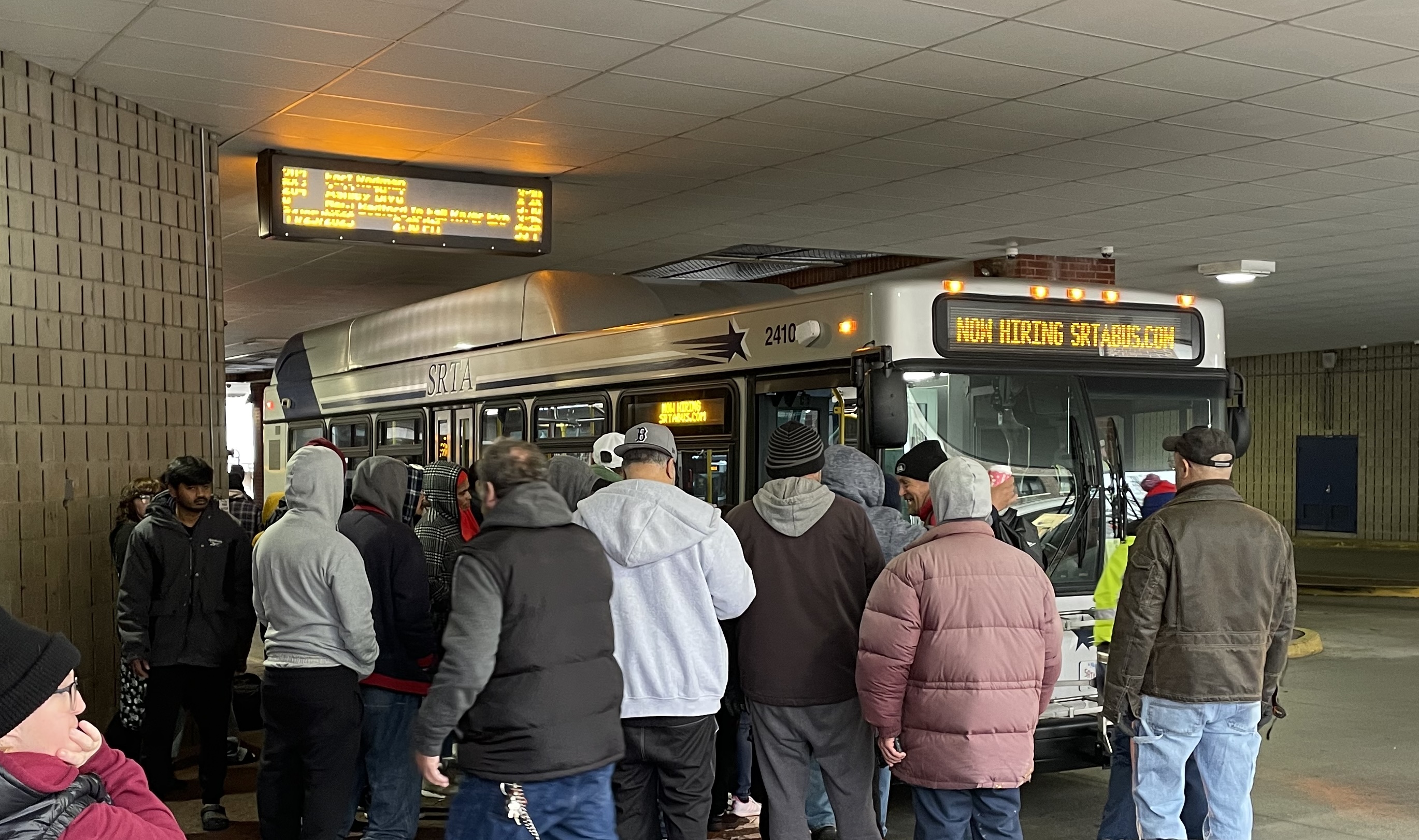In spite of an acute housing crisis and unfulfilled goals to slash motor vehicle pollution throughout the city, Boston's planning agency approved more parking spaces than homes over the course of 2023.
According to year-end statistics compiled by the Boston Planning and Development Agency (BPDA), Boston approved 69 development proposals that would create 7,346 new homes and 6.2 million square feet of new commercial space.
The proposals would also build enough parking to bring up to 8,053 more cars into the City of Boston – enough to fill all eight lanes of the Southeast Expressway (I-93) with bumper-to-bumper traffic from the Neponset River to the I-90 interchange downtown.
2023 BPDA new project approvals
| Total | Within 1/4 mi. of transit stations | |
| Number of projects | 69 | 28 |
| Gross sq. footage | 13.1 million | 6.6 million |
| Number of new homes | 7,346 | 4,041 |
| Non-residential square footage | 6.2 million | 2.9 million |
| Parking spaces | 8,053 | 3,640 |
3,640 of those new parking spaces – 45 percent of the total approved – would be built in the city's most transit-accessible neighborhoods, within a quarter-mile of an MBTA rapid transit or regional rail station.
BPDA officials told StreetsblogMASS that the majority of those parking spaces – 4,935 of them – would be assigned to non-residential uses, like offices, hotels, and labs.
Among residential projects, the BPDA's 2023 approvals averaged 0.42 new parking spaces for each new home.
2021 parking reforms show little effect to date
StreetsblogMASS has reported similar results in year-end roundups of the BPDA's parking and housing approvals for five consecutive years now (read our stories from 2019, 2020, 2021, and 2022).
Only in one of those stories – our roundup from 2020 – could we report that the BPDA approved more homes than parking spaces.

In 2021, the BPDA adopted new rules that limit the amount of parking that developers will be allowed to build, with stricter limits applying in the city’s most transit-accessible neighborhoods.
In October of the same year, the Boston City Council voted unanimously to eliminate minimum off-street parking requirements for affordable residential development projects.
Many of the applications that the BPDA approved in 2023 came in after those reforms took effect.
But the overall ratio of parking spaces per approved home nevertheless remained similar to what it had been in 2020 and 2021.
Compared to past years, a higher ratio of new development approvals in 2023 were for projects in outlying neighborhoods, far from the city's rapid transit and commuter rail stations.
41 of the 69 new developments that the BPDA approved in 2023 were at least a quarter-mile away from an MBTA rapid transit or regional rail station.
Those developments, on average, have higher ratios of parking compared to projects that were approved for more transit-accessible areas.
Among the subset of 28 projects located within a quarter mile of an MBTA stop, developers are actually planning to build more housing units (4,041) than parking spaces (3,640).
Parking exemptions for affordable housing has limited impact
The city's new exemption in parking mandates for affordable housing applies only to buildings where at least 60 percent of the units are set aside for lower-income households.
Only a small handful of the BPDA's 2023 project approvals would have met that criterion, as most of the new affordable housing the city approved this year would be integrated into larger developments that would include more higher-income housing.
Still, the zoning reform helped a small number of affordable housing projects move forward in 2023.

For instance, the Boston Housing Authority won approvals for the final phase in its redevelopment of the Old Colony neighborhood near Moakley Park (pictured above).
The new 6-story building, roughly half a mile away from the Andrew Square Red Line station, will have 89 apartments and no off-street parking.
On the other hand, and on the other side of the city, the East Boston Community Development Corporation opted not to take advantage of the new parking rules for new affordable housing they plan to build at 2 Shawasheen Road, next to the Orient Heights park-and-ride lot in East Boston.
That project proposes 57 new affordable apartments, but also proposes to build 36 indoor parking spaces in two separate ground-floor parking garages.





